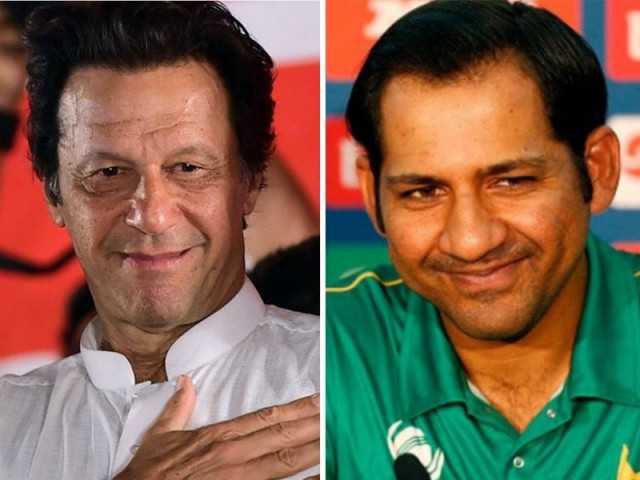Our cricket and our govt: striking similarities
Little is rational about the love people have for the cricket team and the country at large

Pakistani cricket is also the graveyard where raw talent comes to die at the hands of a broken system. If our talent succeeds, it’s not because of the system but despite it. And the parallels between Pakistani cricket and governance are frightening. Our primary motivator is winning a world cup every four years/ election every five years, with a disproportionate emphasis on individual talent at the expense of building institutions and hard work. Because cricket is less political than governance. It’s useful to study cricket as a proxy for national behaviour to understand and make policy recommendations for politics and governance.
Let’s begin with our fixation/national obsession to beat India. Many of us felt that Pakistan couldn’t win the World Cup but if we’re able to beat India that would be enough of a win for us to declare this a successful World Cup effort. Some of my friends prayed for us to beat India even if it came at the expense of losing the World Cup (because that’s the order of priority). This is similar to how we allocate resources in our national budget.
Beating India means national security takes priority over development expenditure. Beating India is more important than the actual game, which is to uplift the quality of life of the Pakistani people. I’m not arguing against critical defence expenditure but illustrating how our mental priorities translate into real world resource allocation. Much like cricket, we also run our government from the heart versus the head.
Next, let’s come to our obsession with winning world cups (elections), instead of getting better at the game (governance). You cannot win world cups consistently on raw talent. You have to nurture the institution of domestic cricket to produce, train and groom the next generation of cricketers. Our elected leaders anchor their politics around building personality cults instead of developing strong, institutionalised political parties which can produce a pipeline of grass root talent that can help them govern effectively, once they’re in power.
Next, let’s talk about Pakistani cricket when it’s at its best i.e. when there’s an existential threat and we’re cornered. This is also when the Pakistani state performs at its very best. Consider the remarkable win in the war against terrorism after doomsday scenarios for years about being overrun by militant extremists. Also, consider the development of nuclear weapons. Our state performs only when it needs to save itself. This is a horrible way to govern or play cricket. We need to focus on playing a better game versus winning (winning will automatically follow). Similarly, our politicians need to focus on governance versus political point scoring.
Finally, notice the difference in audience reaction between Pakistan winning a cricket match and losing one. Whenever Pakistan wins a match, 200 million people rush to take credit. On the other hand, when Pakistan loses a match, it’s usually the captain’s fault. Pakistan is a nation brimming with talented individuals, much like its cricket team. But instead of taking ownership of our poor collective performance, we find reasons to blame others (conspiracy theories), including our captain.
More often than not, a skipper doesn’t create a successful side. Instead, a successful skipper delivers superior results by making a strong team play in the right positions (notice Imran Khan’s repeated public addresses encouraging people to pay taxes). In fact, there’s a reason why Pakistan has produced talented bowlers and batsmen but never really nurtured great talent in fielding. That’s because batting and bowling enable cricketers to make a name for themselves in the team. Fielding merely helps the team win more consistently.
Published in The Express Tribune, June 30th, 2019.
Like Opinion & Editorial on Facebook, follow @ETOpEd on Twitter to receive all updates on all our daily pieces.















COMMENTS
Comments are moderated and generally will be posted if they are on-topic and not abusive.
For more information, please see our Comments FAQ